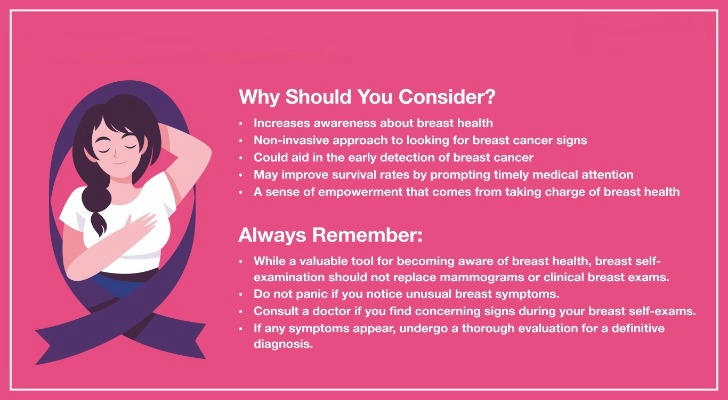Want to protect your breast health? You need to know about these policies and screenings!
When was the last time you had a breast cancer screening?
Many women wait until symptoms appear before visiting a doctor. However, early detection significantly increases the chances of recovery. The good news is that the United States already has several government-supported screening programs, making it easier and more reassuring for women to protect their health.
Ⅰ.When should women start breast cancer screening? How often should screening be performed, and what screening methods are used?
Women are generally advised to start monitoring their breast health at age 40 and develop a screening plan with their doctor. General guidelines are as follows:
1.Screening Frequency
USPSTF (U.S. Preventive Services Task Force): Women aged 40–74 should have a mammogram every two years.
ACS (American Cancer Society): Women aged 45–54 should have a mammogram annually; those aged 55 and older can increase this to every 1–2 years; those aged 40–44 can start earlier.
High-risk individuals (those with genetic mutations, family history, or a history of radiation therapy) may require earlier and more frequent screening.
2.Screening Methods
Mammogram: The most commonly used and established screening method, considered the "gold standard" for early detection of breast cancer.
2D vs. 3D Technology (Breast Tomosynthesis): Compared to 2D, 3D provides clearer images and can reduce repeat visits and unnecessary medical returns.
Ultrasound and MRI: Mainly used as supplementary examinations for high-risk groups or when X-ray results are abnormal, to help obtain a more accurate assessment.
Ⅱ. What current US government policies are helping protect women's breast health?
1. Insurance Coverage
Under the Affordable Care Act (ACA), most health insurance plans are required to cover breast cancer screening for women 40 and older, often with no out-of-pocket cost, making it easy for insured women to get regular screenings.
2.Women with Underinsurance or No Insurance
Can apply for the CDC National Breast and Cervical Cancer Early Detection Program (NBCCEDP). States provide funding and support to help with screening and necessary follow-up.
3. Post-Diagnosis Treatment Coverage
Some state Medicaid programs (such as BCCTP) ensure that low-income women have access to treatment after diagnosis, alleviating financial stress.
4. Breast Reconstruction Legal Coverage
According to the WHCRA, any insurance policy that covers mastectomy must also cover breast reconstruction and related treatments, allowing women to regain their confidence after treatment.
5. Convenient Screening, Caring for Women's Health - Mammovan Mobile Screening Vehicle
Provided by Nevada Health Centers, this mobile screening vehicle, equipped with 3D mammography equipment, travels throughout the state, including urban and rural communities, allowing women to receive professional examinations without traveling far. Arrangements are convenient, the process is fast, and it's safe and comfortable.
⚠️ Notice: Policies and coverage vary by state, insurance company, and individual circumstances. Service routes, costs, and eligibility are subject to change at any time. Please refer to official information for the latest updates.
Ⅲ. Why does every woman deserve regular screening?
1.Early Detection, Saving Lives
2.Peace of Mind: Understanding your health status reduces anxiety
3.Timely Intervention Reduces Treatment Difficulty
4.Policy Support and Affordability: Various funding programs make screening more accessible to more women
5.Convenient Access: Mobile screening vehicles reach remote communities, making health accessible
Ⅳ. Case Study
Mary (a pseudonym), 46, lives in rural Nevada. Due to her busy work schedule, she hadn't been able to visit a city hospital for checkups for years. Upon learning that the Mammovan screening vehicle would soon be arriving in her community, Mary decided to try it out. On that day, she simply presented her ID, and the entire process took less than 30 minutes. The results came back positive. Her doctor recommended biennial screenings. Mary said, "With this mobile screening vehicle, I can finally take control of my health and feel much more at ease."
Ⅴ. Daily Prevention: Keeping Breast Health at Your Side

Maintaining a Healthy Weight: Obesity is associated with an increased risk of breast cancer.
Balanced Diet: Eat more fruits, vegetables, and whole grains, and limit red meat and processed foods.
Regular Exercise: At least 150 minutes of moderate-intensity exercise per week.
Limiting Alcohol Intake: Minimize alcohol intake.
Quitting Smoking: Tobacco use increases the risk of various cancers.
Breastfeeding: Breastfeeding can reduce breast cancer risk to a certain extent.
Paying Attention to Breast Changes: If you notice a lump or abnormal discharge, seek medical attention immediately.
Ⅵ. Women's Most Common Questions About Breast Screening
Q1: Will the test hurt?
It's a brief pressure sensation, and most people experience only mild discomfort.
Q2: Is radiation safe?
Mammography has a low dose, and the risks far outweigh the benefits of early detection.
Q3: Does an abnormal result mean cancer?
Not necessarily. In many cases, it simply means that the image or tissue is unclear, requiring further investigation.
Q4: What if I don't have insurance?
You can access affordable screening and support through government-funded programs (such as NBCCEDP).
Q5: Can I have breast reconstruction after surgery?
As long as your insurance covers your mastectomy, federal law (WHCRA) guarantees your right to choose reconstruction.
Q6: How can I learn about screening programs in my state?
State public health departments or community clinics will provide information on screening programs, and you can consult local official agencies.
Breast cancer screening is an important step in protecting women's health.
Take care of yourself and your health, starting with early screening to make your life more secure and empowered.
